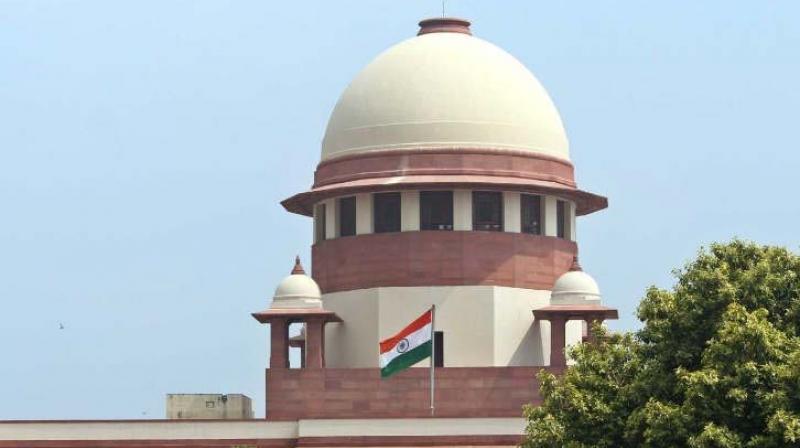Interlocutor discussing issues about special rights to J&K residents: Centre to SC
SC was hearing petitions challenging constitutional validity of Article 35 A which allows J&K to define its 'permanent residents' .

New Delhi: The Centre on Monday informed the Supreme Court that the interlocutor appointed by the Union Government had visited Jammu and Kashmir 10 times and had interactions with the stakeholders and the report is expected in three months.
Attorney General KK Venugopal appearing for the Centre told a three-judge bench of Chief Justice Dipak Misra and Justices AM Khanwilkar and DY Chandrachud that any order passed by the court at this stage would have repercussions.
It is a very sensitive issue, the AG said and made it clear that the Centre did not want to file its reply on validity or otherwise of Article 35A of the Constitution conferring special status to the state.
The bench was hearing a batch of petitions challenging the constitutional validity of this article which allows J&K legislature to define its 'permanent residents' and bestow special rights and privileges on them.
The bench posted the matter for final hearing on August 6 and said it would consider referring the matter for adjudication by a five judge constitution bench as interpretation of constitutional issues were involved in this matter.
Dr Charu Wali Khanna, a Kashmiri Pandit woman and others have challenged Article 35 A of the Constitution as unconstitutional. Counsel Bimal Roy Jad argued that the petitioner who had married outside her caste and settled outside J&K was not entitled to property and even her children cannot get any property. He argued that gender bias is writ large on this Article, which is also violative of Article 14 of the Constitution, viz right to equality.
Dr Khanna challenged the notification date April 20, 1927 issued by the Maharaja Bahadur of Kashmir which took away the right of a wife or widow otherwise available to them as state subject unless she resides in the state and does not leave the state for permanent residence. The same was given Constitutional sanction by Article 35A read with Section of the J&K constitution.
Article 35A bars all the Indians— other than the original inhabitants of the state—from acquiring immovable property anywhere in J&K, obtaining jobs under the J&K Government, settling in the state and availing the state-sponsored scholarship schemes.
The petitioner contended that the J&K government, under the guise of Article 35A and Article 370, which grants special autonomous status to the state, has been discriminating against non-residents who are debarred from buying properties, getting a government job or voting in the local elections.
The petitioners said Article 35A provides immunity to such classification without reasons, taking away the right of equality guaranteed under Article 14 of the Constitution. It was submitted that more than 4000 persons who belong to the second, third and fourth generation had moved from Gurdaspur and Amritsar in the State of Punjab to settle in the Jammu area of J&K, so as to work as sweepers.
The petitioners were born in the State of Jammu and Kashmir and since their birth, they have been permanently residing and living in the State.
The denial of right to seek admission in state funded higher technical educational institutions, denial of right to get state scholarship and state aid to the students, denial of opportunity of employment in the state services and public sector undertakings and local bodies under state government, denial of right to acquire and hold property for the purpose of shelter and settlement were affecting their fundamental rights. Hence, the present petition to declare Article 35 A as unconstitutional.
The PILs sought Article 35A in the Constitution to be declared unconstitutional, contending that the President could not have amended the Constitution by the 1954-order and it was supposed to be a temporary provision.

